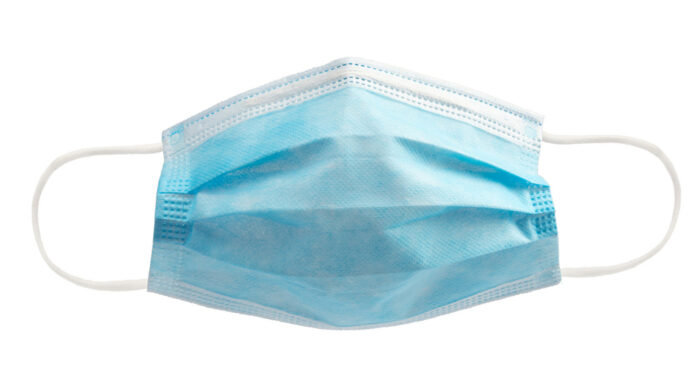With Pride Month in full swing, my Instagram feed fills with posts from parades and drag shows. Friends, lovers and comrades stand together, uninhibited among peers. The resilience of our community during a time of political turmoil and legislative threats, particularly against transgender people, warms my heart.
Yet, I cannot help but notice that beyond a rare handful, no one is wearing a mask.
Ironically, most people I know who go to Pride are the same ones who, during the onset of the coronavirus pandemic in 2020, were advocates of mask mandates and other protective measures against COVID-19. They shared information about testing centers and the vaccine once it became available, ensuring each of their friends knew their local resources, or how to find them.
I’d argue that most attendees of Pride felt this way, too, three years ago. A group that has experienced fatal neglect in the past and faces countless threats to our existence should know the value of community care.
But here we are, without public-health measures or regard for community well-being during an ongoing pandemic. While Pride is meant to be an inclusive, safe place for LGBTQ+ people to celebrate and socialize, the lack of COVID protocols creates unsafe, inaccessible conditions for us all. Genuine inclusivity requires mask-wearing as a non-negotiable.
LGBTQ+ people self-reported conditions associated with severe COVID infection at greater rates than non-LGBTQ+ people, the Centers for Disease Control and Prevention COVID Response Team found. These include asthma, cancer and diabetes, all heightening one’s risk of hospitalization or death from COVID.
Additionally, COVID infection in a person with HIV can lead to the development of further neurological conditions, including Parkinson’s and Lou Gehrig’s diseases, as indicated by an early study out of the University of Nebraska Medical Center and Karolinska Institutet, a Swedish research-led medical university.
Who is most affected by HIV? Gay and bisexual men and transgender women, all of whom are reasonably likely to attend Pride events.
COVID itself can compromise the immune system, as the disease imparts long-term damage on it, “an effect akin to that observed in” hepatitis C and HIV infections, Stanford University School of Medicine researchers found.
Missing out on Pride or risking severe COVID infection should not be the only options for immunocompromised people. Luckily, the simple solution of mask-wearing has repeatedly been proven to decrease the spread of COVID.
The effectiveness of mandates may be challenging to track, but masking as a safeguard against transmission is not. Mask-wearing reduces transmission of COVID by at least 19%-25%, with likely greater effects from higher-quality masks, according to research published in the Proceedings of the National Academy of Sciences journal.
Not to mention aiding in the defense against long COVID, which the U.S. Department of Health and Human Services lists as a disability under the Americans with Disabilities Act. In May, 10% of adults were actively experiencing long COVID symptoms, and 28% of all cases in adults led to long COVID, the CDC reported.
COVID, the disease, is more than its symptoms and is active after they pass. When lacking symptoms, it can still affect the body and spread to others. COVID “has capability to damage many organ systems,” according to a research article in the Nature Reviews Microbiology journal. It can lead to inflammation of the brain, heart attacks, strokes, poor mental health and more, Harvard Medical School professor Anthony L. Komaroff wrote.
There are many reasons to avoid this deadly airborne disease, and the lack of precautions at Pride — by both organizers and attendees — is community neglect, the antithesis of Pride’s values.
One may think that by now, it would be impossible to require masks at a largely outdoor event with thousands of attendees. Most people have moved past the mask. Yet the Boston Dyke March has proven for the past three years that it is indeed possible. Following this lead would be a move toward a more inclusive celebration of Pride, indicative of valuable community care.
Thousands went to Philadelphia’s Pride March, estimated by the Philadelphia Inquirer. With defunct testing and data centers, the real number of COVID infections following Pride will not be known, but Philadelphians will suffer. This didn’t need to be the case.
